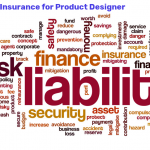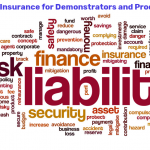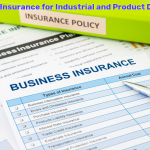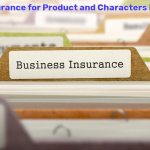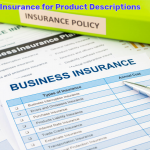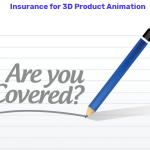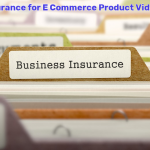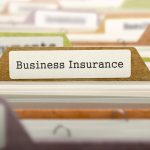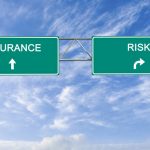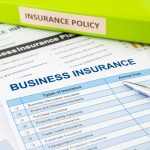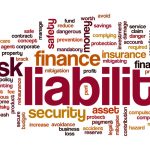One of the most important policies for your small business is Professional Liability insurance, as we will show.
Small business is the backbone of the American economy, and one of the reasons for the success of most small businesses is the fact that they can afford and easily get insurance for their main risks.
What Are You Looking For?
Choose and Get Your Free Quote:👇️
General Liability Insurance ->
Professional Liability ->
Product Liability Insurance ->
Commercial Auto ->
Workers Compensation ->
Commercial Property ->
Other Business Insurance ->
This means that they can concentrate on making their business profitable and successful without spending time and precious cash protecting themselves.
One of the most important policies for you is Professional Liability insurance, as we will show.
Anyone who conducts commercial transactions, whether it’s a person or a company, has taken upon himself a whole range of obligations and liabilities.
If you had a bit of bad luck, such as a visitor to your workshop slipping, falling and breaking a bone, or your retail store being gutted in a fire, or your software development company being sued for breach of contract, it could ruin not just your business, but your own finances because without proper insurance protecting you in such instances, you are liable for meeting all of the costs coming out of these incidents out of your own pocket.
This is why liability insurance, such as public liability insurance that protects you from injury or damage to third parties, and professional liability insurance, which protects you from claims of negligence, are so important.
What is the liability from products?
In broad terms, a liability means an obligation to pay. It can mean some kind of debt, such as when your business borrows money from a lender or goes into overdraft at the bank.
In this case, the amount that is owed is a liability, and you have a duty to see to it that the amount is repaid.
Your liability in insurance terms means that by being in business, you have agreed to take on a degree of risk if some accident happens and a court decides that you were responsible.
Product Liability insurance is one of the most essential basic protections that every small business that is selling goods to customers needs.
The success of any business depends on how well the products you supply match your advice and advertisements.
Good publicity means more sales, but you also need to be protected if something goes wrong and your customer is dissatisfied with something you have said or that the product you sold has done (or failed to do), or with the outcome of a transaction or contract.
What are the primary forms of a claim for product liability?
There are several arguments that a dissatisfied customer can use if they sue you for damages in a product liability suit.
The product fails the Consumer Expectations test
The consumer expectation test makes you liable if the product itself was defective or in a condition making it dangerous when you sell some product.
A court can decide that the product was defective if it fails to meet consumers reasonable expectations.
The product has a design defect
A design defect exists when an inherent defect in the product’s design could have been corrected with an alternative design, making it safer than the original design without adding substantially to costs.
Defective design claims are made when an entire line of products is faulty or dangerous, not when an individual item was faulty, in which case it will claim it was manufactured defectively because it was made according to specifications.
Usually, these will be a “class-action” case because the default will affect multiple people.
The product was manufactured defectively
Perhaps the most frequent kind of product liability claim is when the product was manufactured with some defect that makes it different from the design.
You did not supply proper instructions and warnings
You are obliged to notify buyers of any known hazards, or particular methods of use, relative to the product.
Product liability insurance doesn’t cover you if a product of yours simply doesn’t work, only if your product’s defective or faulty design caused bodily injury or property damage to a third party.
What businesses need Product liability insurance?
Just because you are operating in the USA, you should be aware that you run higher risks of being sued for product liability than anywhere else in the world.
According to Wikipedia, “product liability litigation is much more frequent there than anywhere else in the world, awards are higher, and publicity is significant.”
If you deal with products, whether you are a designer, a manufacturer, a wholesaler, a distributor or a retailer, you need to protect yourself with product liability insurance.
Across the whole supply chain, you can be held responsible for claims of injuries and damages caused by products claimed to be defective in some states, and this is the case in California and many other states.
If you are trying to sell your products to other companies, you should know that they will not buy from companies that don’t have their own product liability insurance.
What is an example of a Product Liability case?
One of the most prominent examples, which hit the headlines in 2016, was of the Samsung Note 7 phone.
Many incidents of the phone exploding or catching fire were reported, and even though Samsung alleged that the problem was coming from the battery that they were buying from another company, which meant they were not responsible for the fault, in many cases, the courts decided against them.
The total cost was many millions of dollars in payouts, plus the cost of a recall.
How much Product Liability insurance do you need, and what will it cost?
The total level of insurance you need relates to your kind or business and the sales volume.
Any products more likely to result in an injury have greater liability risks, pushing the policy costs up.
Being a smaller business is actually a bonus because most product liability cases are brought against bigger enterprises where the claimants are more confident that they will get paid if they win.
Still, the size of your company in terms of volume, and your claims history, will be a significant factor in the calculation of premiums.
The longer you have been in business without making claims will considerably reduce the costs.
If you are selling products in a low-risk category, you can expect to pay between $25 and $30 per $10,000 in revenue.
FAQ
Can you get Product Liability insurance bundled with other policies?
To decrease the cost of product liability insurance, you should talk to your insurance agent or broker about the option to combine product liability with other liability insurance.
Usually, insurance companies offer a special policy known as Business Owners Policy (BOP) which combines general liability and commercial property insurance.
In this option, product liability cover is added by an endorsement of the general liability policy.
BOP is usually only practical for you if you have a property to insure.
Otherwise, individual policies would work out cheaper with an endorsement to the general liability policy.
Can you reduce your product liability risk?
One of the best ways of reducing the risk of being sued, or at least of avoiding judgments that go in favor of the other party, is to abide by the guideline of the US Consumer Product Safety Commission.
It provides services specifically to small businesses, like the Regulatory Robot, that will “guide you through our requirements to identify important product safety requirements that you should review before manufacturing or importing your consumer product.”
What kind of incidents does Product Liability insurance not cover?
In cases of injuries to your own employees, workers compensation insurance is required in most states.
If you have been sued and products have been found to be defective, you cannot claim costs of a product recall from other buyers.
Software and other “intangible” products are not covered by product liability, but need their own special insurance policies, such as this one for WordPress developers.


